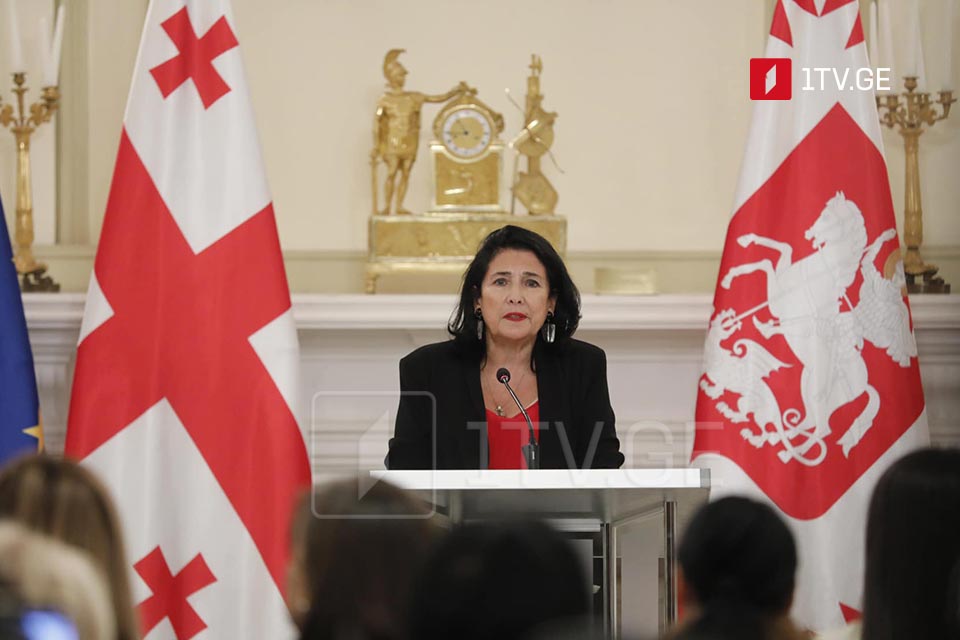Georgian President addresses 67th Session of the Commission on the Status of Women
Georgian President Salome Zourabichvili addressed the UN 67th session of the Commission on the Status of Women, which takes place from 6 to 17 March in New York with the priority theme of “Innovation and technological change, and education in the digital age for achieving gender equality and the empowerment of all women and girls”.
The President said that in the technologically fast-changing world, women had to be engaged in decision-making processes. She stressed that gender equality represented one of the fundamental pillars of democracy in Georgia, remarking that Georgia had female voters and elected women representatives in the executive and legislative authorities from the beginning of the 20th century.
“Proud of our history, we are also proud of our achievements and new commitments and of the significant steps that are made in terms of fulfilment of the provisions of the Istanbul Convention and of the obligations taken at the Generation Equality Forum in 2021, in Paris, by joining the coalitions on gender-based violence and empowerment of women through technologies.
Major steps have been taken an official Working Group on the prevention of Femicide, a new State concept on Gender Equality, barrier-free access to social/state services for the victims of violence, and the introduction of gender quotas, which have increased the number of women in parliament and the local municipalities,” she said.
The President of Georgia emphasized women faced challenges “despite tangible progress.”
“However, despite this tangible progress, Georgia still faces some significant challenges. 48% of women aged 24-35 are not economically active, especially in rural areas, and more than half of women politicians, myself included, have experienced some sort of violence.
Another challenge that has just emerged concerns the role of civil society, which is central in terms of its truly transformational role to allow women’s voices to be better heard. In that respect, the introduction by some groups in my country of a draft law that would restrict the freedom of non-governmental organizations (in which, I must say, women activists have a predominant share) would be extremely damaging to the democratic transformation of our society, to the elimination of gender-based discrimination and gender-based violence and indeed to our European integration path.
I have hence expressed my vivid objections to this draft law internally, and I seize this occasion to reiterate my position here,” she said.
President Zourabichvili spoke about women residing across Georgia’s occupied territories, saying they had “no access to basic rights.”
“While we are talking of a bright future that technology, innovation, and equal opportunities can lead to, we cannot forget the women and girls that are left on the side: Our women and girls in the occupied territories of Abkhazia and Tskhinvali region that have little if no access to basic rights, basic education or health services.
We cannot forget the Iranian girls that are poisoned in their schools. We cannot forget the Afghan girls deprived of schooling. We cannot forget the Ukrainian women defending, in tragic circumstances, their basic right to preserve a free and sovereign country.
We cannot forget Sviatlana Tsikhanouskaya sentenced today by the Belarusian government in defiance of our solidarity. We cannot forget the Turkish women and children in the rubbles of the biggest earthquake catastrophe of their history….
And while remembering them all, I can rejoice at least in the fact that the new technologies have already had one effect: that their plight is no longer one to be suffered alone and in silence, we hear you and see you even if we cannot always help as much as we should!” President said.

